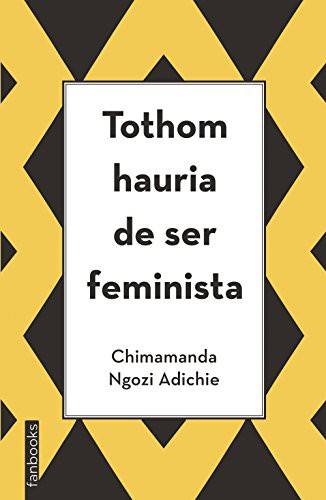More of an Adaptation of a Speech, but Concise and Appropriate.
5 stars
For a little while now I’ve been wanted to read more feministic literature but I hadn’t gotten round to it till today. I decided that We Should All Be Feminists should the start of my journey through feministic literature. Above all else this book started a desire within me to take up public speaking, to speak for those who have no other means of public communication, to speak to those who otherwise won’t or don’t listen, and most of all, to share, further, and develop ideals that should be globally accepted.
One point in the book that really stood out to me was the mention of the differences between referring to yourself as an egalitarian rather than as a feminist. To quote Adichie, ‘to choose to use the vague expression human rights is to deny the specific and particular problem of gender. It would be a way of pretending …
For a little while now I’ve been wanted to read more feministic literature but I hadn’t gotten round to it till today. I decided that We Should All Be Feminists should the start of my journey through feministic literature. Above all else this book started a desire within me to take up public speaking, to speak for those who have no other means of public communication, to speak to those who otherwise won’t or don’t listen, and most of all, to share, further, and develop ideals that should be globally accepted.
One point in the book that really stood out to me was the mention of the differences between referring to yourself as an egalitarian rather than as a feminist. To quote Adichie, ‘to choose to use the vague expression human rights is to deny the specific and particular problem of gender. It would be a way of pretending that it was not women who have, for centuries, been excluded. It would be a way of denying that the problem of gender targets women.’



